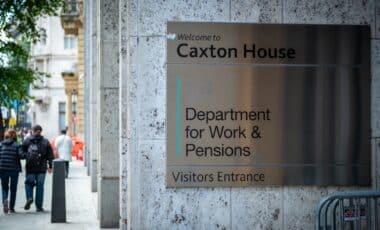Changes to Personal Independence Payment (PIP) are on the horizon, with significant implications for thousands of unpaid carers across the UK. According to Manchester Evening News, adjustments to eligibility rules could alter access to certain benefits currently linked to PIP.
While full details of the impact are still unfolding, early figures suggest a substantial shift in how financial support will be allocated under the revised system.The government maintains that these reforms are part of a broader realignment of welfare provisions, but critics warn of serious consequences for those providing informal care.
Revised Pip Criteria to Impact Carer-Related Benefits
Currently, to qualify for the standard rate of the daily living component of PIP, individuals must score between 8 and 11 points across multiple activities. The enhanced rate requires 12 points or more.
From November 2026, eligibility will be tightened: a claimant must obtain at least four points in one single activity to qualify for the daily living component.
The mobility component of PIP will remain unchanged. However, because benefits such as Carer’s Allowance and the carer element of Universal Credit rely on the cared-for person receiving PIP, these adjustments will have knock-on consequences.
Around 800,000 people are expected to lose the daily living part of PIP by 2029/30, with 150,000 carers among those losing associated entitlements.
Financial Impact and Government Projections
According to the DWP’s impact assessment, changes to PIP rules will result in a £500 million reduction in financial support for unpaid carers by the end of the decade. The average annual loss per individual affected is estimated at £1,720.
Carer’s Allowance, currently valued at £81.90 per week, requires the carer to provide 35 hours or more of care per week for someone receiving qualifying benefits like PIP. The Universal Credit carer element, worth £198.31 per month, is similarly tied to the benefits status of the person being cared for.
Strong Reaction From Carers UK and Charities
Helen Walker, Chief Executive of Carers UK, reacted firmly:
Today’s spring statement confirms that the Government’s welfare reform plans will include the first substantial cuts to Carer’s Allowance in decades, realising many carers’ worst fears. This is an unprecedented step in the wrong direction and must be swiftly rectified.”
She further added :
“According to the DWP’s impact assessment, changes to Personal Independence Payments (PIP) entitlement rules will see 150,000 people lose their entitlement to carers’ benefits by 2029/30 – a reduction in financial support for carers worth £500million.”
Walker also emphasised the systemic consequences :
“PIP is a ‘gateway’ benefit impacting eligibility for further support for carers, for whom the knock-on effect is both shocking and shameful. This will cause huge anxiety for hard-pressed carers and their families who need every penny they can get to pay their bills. 1.2 million unpaid carers already live in poverty, and 400,000 live in deep poverty in the UK.”
She concluded by underlining carers’ vital contribution:
“Carers save the UK economy an estimated £184 billion a year, but now many more are in danger of further financial hardship and poverty. They deserve so much more.
The repercussions of today’s changes will be felt deeply by those who for too long, have been our last line of defence – providing vital support which simply can’t be found elsewhere.”
Additional Reforms to Universal Credit and Disability Assessments
Alongside PIP reforms, the government confirmed that the Work Capability Assessment (WCA) will be scrapped, and replaced by a PIP-based evaluation system to determine a person’s fitness for work. This represents a significant shift in how eligibility for health-related support within Universal Credit will be assessed.
Furthermore, the Universal Credit health element for new claimants will be reduced from £97 to £50 per week from April 2026. This lowered rate will remain in place until 2029/30.
Individuals with the most severe or lifelong conditions will continue to receive the higher level through a separate premium. For existing claimants, the current rate of £97 per week will be maintained during the same period.
These policy shifts were laid out by Chancellor Rachel Reeves during the recent Spring Statement, part of a broader effort to reduce the UK welfare budget. Projections suggest that up to 3.2 million families could be affected by 2030.









